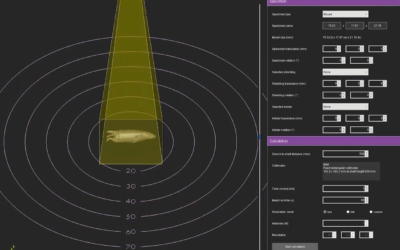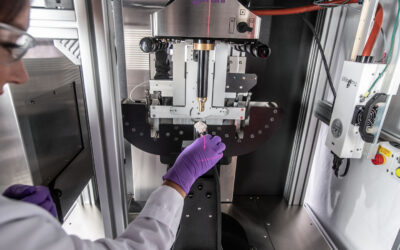In their paper “Interleukin 6 Signaling Blockade Exacerbates Acute and Late Injury From Focal Intestinal Irradiation” Bell BI, Koduri S, Salas Salinas C, et al, aim to evaluate the acute changes in leukocyte populations after focal irradiation and to assess the role of interleukin 6 (IL-6) in acute and late radiation injury.
Mice were surgically implanted with a radiopaque marker on the surface of the small intestine. Mice were then imaged with cone beam computed tomography to locate the marker and irradiated with 18 Gy of 5 × 5 mm collimated x-rays onto the marked intestine using the Small Animal Radiation Research Platform. Intestinal sections and blood were harvested 1, 3.5, 7, and 14 days and 2 months post-irradiation for histology and complete blood count, respectively. Immune cell populations were assessed by immunofluorescence in the acute phase. Collagen deposition was assessed 2 months post-IR. IL-6-/- intestinal sections were assessed post-IR for morphology, EdU, Ki67, and TUNEL in comparison to IL-6+/+ mice. Furthermore, a set of IL-6+/+ mice were treated with anti-IL-6R to assess the role of IL-6 in late intestinal injury.
They found that intestinal radiation damage peaked 14 days post-irradiation, and fibrosis had developed by 60 days post-irradiation. There was a marked infiltration of immune cells into the irradiated intestine, with increased neutrophils, macrophages, B-cells, and CD4+ T cells maintained from 3.5 to 14 days post-irradiation. CD8+ T cells were decreased from days 7 to 14 post-irradiation.
Systemically, leukocytes were increased in the peripheral blood 14 days post-IR with anemia being maintained from 14 days to 2 months. IL-6 was significantly increased in the serum post-IR. IL-6-/- mice demonstrated worsened intestinal injury acutely post-IR. Moreover, anti-IL-6R-treated mice presented with worsened intestinal fibrosis 2 months post-irradiation.
They concluded that focal irradiation of the intestine produced a significant increase in immune cells in the irradiated area and systemic inflammation and anemia. Blockade of IL-6 signaling was found to exacerbate acute intestinal injury and late intestinal injury after focal irradiation.
This Xstrahl In Action was adapted from a article found on a National Library of Medicine website.






